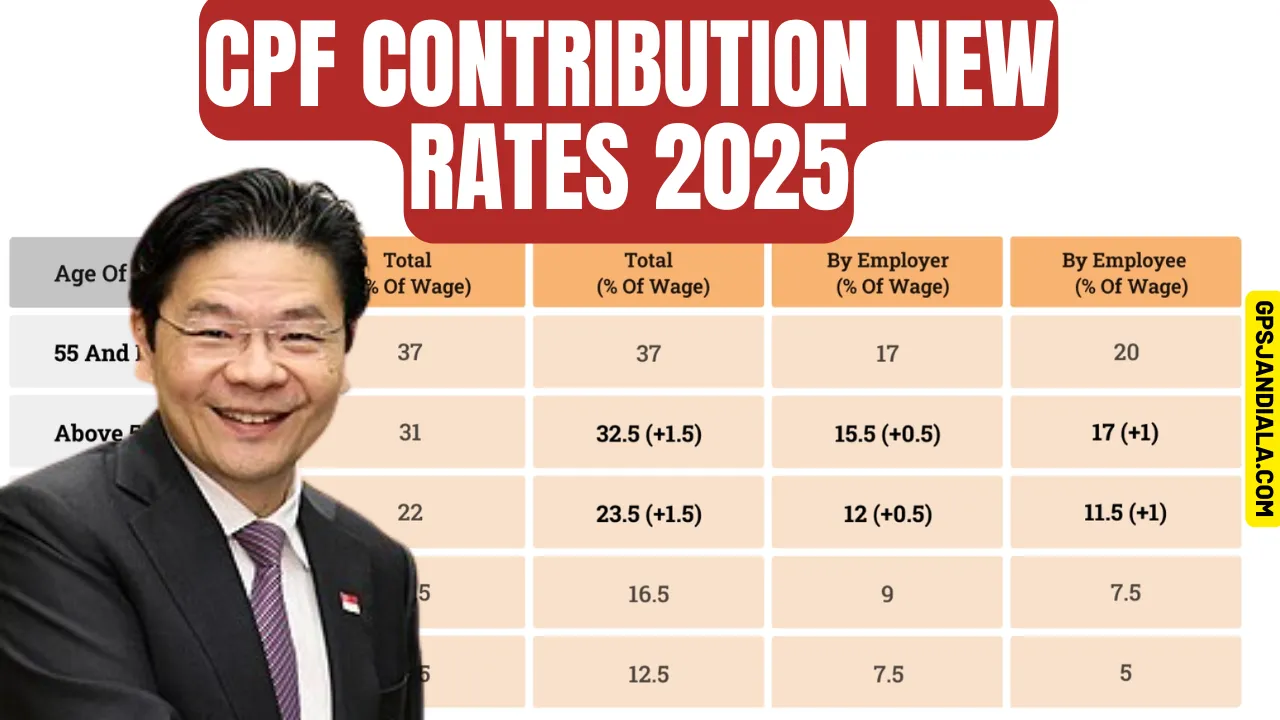DWP Benefits Increase 2025: Starting in April 2025, millions of people across the UK will receive higher benefit payments from the Department for Work and Pensions (DWP). These adjustments, affecting Universal Credit, State Pension, Child Benefit, Carer’s Allowance, and disability benefits, aim to help individuals and families manage rising living costs. The increases are designed to keep payments aligned with inflation and wage growth, providing essential financial support to low-income households, pensioners, carers, and those with disabilities.
This article outlines the key changes, new payment rates, and how the increases will impact different groups. By understanding these updates, you can better prepare for the financial adjustments coming in 2025.
Overview Table
| Benefit | Previous Rate (£) | New Rate (£) | Increase (£) |
| Universal Credit (Single, 25 and over) | 393.45 monthly | 400.14 monthly | 6.69 |
| Universal Credit (Couple, 25 and over) | 617.60 monthly | 628.10 monthly | 10.50 |
| State Pension (Full New) | 221.20 weekly | 230.25 weekly | 9.05 |
| Attendance Allowance (Higher rate) | 108.55 weekly | 110.40 weekly | 1.85 |
| Carer’s Allowance | 81.90 weekly | 83.30 weekly | 1.40 |
| Child Benefit (First child) | 25.60 weekly | 26.05 weekly | 0.45 |
| PIP Daily Living (Higher rate) | 108.55 weekly | 110.40 weekly | 1.85 |
| PIP Mobility (Higher rate) | 75.75 weekly | 77.05 weekly | 1.30 |
Why Are DWP Benefits Increasing?
Every year, the government reviews benefit payments to ensure they keep up with inflation and provide adequate support to those in need. For April 2025, the increases are based on the Consumer Prices Index (CPI) inflation rate recorded in September 2024, which was 1.7 percent. This adjustment ensures that benefits maintain their value as living costs rise.
However, the State Pension increase follows a different system known as the triple lock mechanism. This guarantees that pensions increase by the highest of three measures: CPI inflation, wage growth, or a minimum of 2.5 percent. Since wage growth reached 4.1 percent, pensioners will receive a more substantial increase compared to other benefit recipients.
The government also considers budget constraints and public demand when adjusting benefits. Advocacy groups often push for higher payments to support vulnerable individuals and families facing financial difficulties.
Universal Credit Increases
Universal Credit is designed to provide financial support to unemployed individuals, low-income workers, and those unable to work. The increases in April 2025 apply to both standard allowances and additional elements for families, disabled individuals, and carers.
For single adults under 25, the monthly allowance will increase from £311.68 to £316.98, while those aged 25 and over will see their payments rise from £393.45 to £400.14. Couples under 25 will receive £497.55 monthly, up from £489.23, and couples where one or both partners are 25 or older will get £628.10, compared to the previous £617.60.
Families with children will also receive more support. The monthly payment for a first child born before April 6, 2017, will increase from £333.33 to £339.00, while the rate for a first child born after this date and for subsequent children will rise from £287.92 to £292.81. Families with disabled children will see the lower rate increase from £156.11 to £158.76 and the higher rate from £487.58 to £495.87. The carer element will also rise from £198.31 to £201.68 per month.
Universal Credit recipients who work and qualify for a work allowance will benefit from higher thresholds. The higher work allowance, for those without housing costs, will increase to £684, while the lower allowance, for those with housing costs, will rise to £411.
State Pension Increase
The State Pension will see a significant increase due to the triple lock policy. The Full New State Pension will rise from £221.20 to £230.25 per week, while the Full Basic State Pension will increase from £169.50 to £176.45 per week.
Low-income pensioners receiving Pension Credit will also benefit from higher payments. Single claimants will receive £227.10 per week, up from £218.15, while couples will receive £346.60 per week, compared to the previous £332.95. These increases provide pensioners with better financial security, helping them manage essential expenses such as food, energy bills, and healthcare.
Attendance Allowance and Carer’s Allowance
Attendance Allowance supports individuals over the State Pension age who need help with personal care due to a disability or health condition. The lower rate will increase from £72.65 to £73.90 per week, while the higher rate will rise from £108.55 to £110.40 per week.
Carer’s Allowance, which supports individuals providing at least 35 hours of care per week, will increase from £81.90 to £83.30 per week. This payment helps cover caregiving-related expenses, such as travel costs and essential supplies.
Child Benefit Updates
Families receiving Child Benefit will receive slightly higher payments starting in April 2025. The weekly rate for the first child will increase from £25.60 to £26.05, while the rate for subsequent children will rise from £16.95 to £17.25. Although the increase is modest, it still provides additional financial support to help families cover child-related expenses.
Personal Independence Payment (PIP) and Disability Living Allowance (DLA)
Personal Independence Payment (PIP) and Disability Living Allowance (DLA) provide financial assistance to individuals with long-term disabilities or health conditions. The April 2025 increases will help recipients cover the additional costs associated with their conditions.
For PIP, the Daily Living Component will increase to £110.40 per week for the higher rate and £73.90 for the lower rate. The Mobility Component will rise to £77.05 per week for the higher rate and £29.20 for the lower rate. These increases aim to help individuals with disabilities cover essential costs such as transportation, personal care, and assistive equipment.
How These Increases Impact UK Households
The DWP benefits increase in April 2025 will provide essential financial relief, though the impact will vary depending on the type of benefit received.
Pensioners will see the most significant benefit due to the 4.1 percent increase in the State Pension. This boost will help older adults manage rising living costs, including food, energy bills, and healthcare.
Low-income families receiving Universal Credit will benefit from modest increases that may help offset rising household expenses. However, some families may still face financial challenges if their costs increase faster than their benefits.
Individuals with disabilities will receive higher payments through PIP, DLA, and Attendance Allowance, helping cover the additional costs associated with their conditions. While these increases provide some relief, many recipients may still struggle with high medical and care expenses.
Carers will receive slightly higher payments through Carer’s Allowance, which can help cover caregiving-related costs. However, the increase may not fully reflect the time and effort required to provide care.
Steps to Prepare for the Benefit Increases
To make the most of the benefit increases, follow these steps:
- Check your updated payments to understand how much you will receive starting in April 2025.
- Adjust your budget to account for the additional income and prioritize essential expenses.
- Ensure that your personal information, including your income and living situation, is up to date with the DWP to avoid any delays or payment errors.
The benefit increases will be applied automatically, so you do not need to submit a new application. However, keeping your information current ensures that you receive the correct payments without any interruptions.
Frequently Asked Questions (FAQs)
When will the DWP benefits increase take effect?
The new benefit rates will take effect from April 2025 and will be applied automatically to eligible recipients.
How much will the State Pension increase in 2025?
The Full New State Pension will increase to £230.25 per week, while the Full Basic State Pension will rise to £176.45 per week.
Will Universal Credit payments increase for all recipients?
Yes, all standard Universal Credit allowances and additional elements for children, disabled individuals, and carers will increase in April 2025.
Do I need to reapply to receive the increased payments?
No, the increases will be applied automatically. However, ensure your personal information and income details are up to date with the DWP.
How can I check my updated benefit payments?
You can check your updated payments through your online DWP account, by contacting the DWP, or by reviewing your benefit statement once the increases take effect.
Conclusion
The DWP Benefits Increase 2025 will provide essential financial support to millions of individuals and families across the UK. With higher payments for Universal Credit, State Pension, Child Benefit, Carer’s Allowance, and disability benefits, these adjustments aim to help households manage rising living costs. While the increases offer some relief, ongoing financial planning is essential to ensure long-term stability.
By understanding the updated rates and how they apply to your situation, you can make informed decisions to better manage your household budget.












